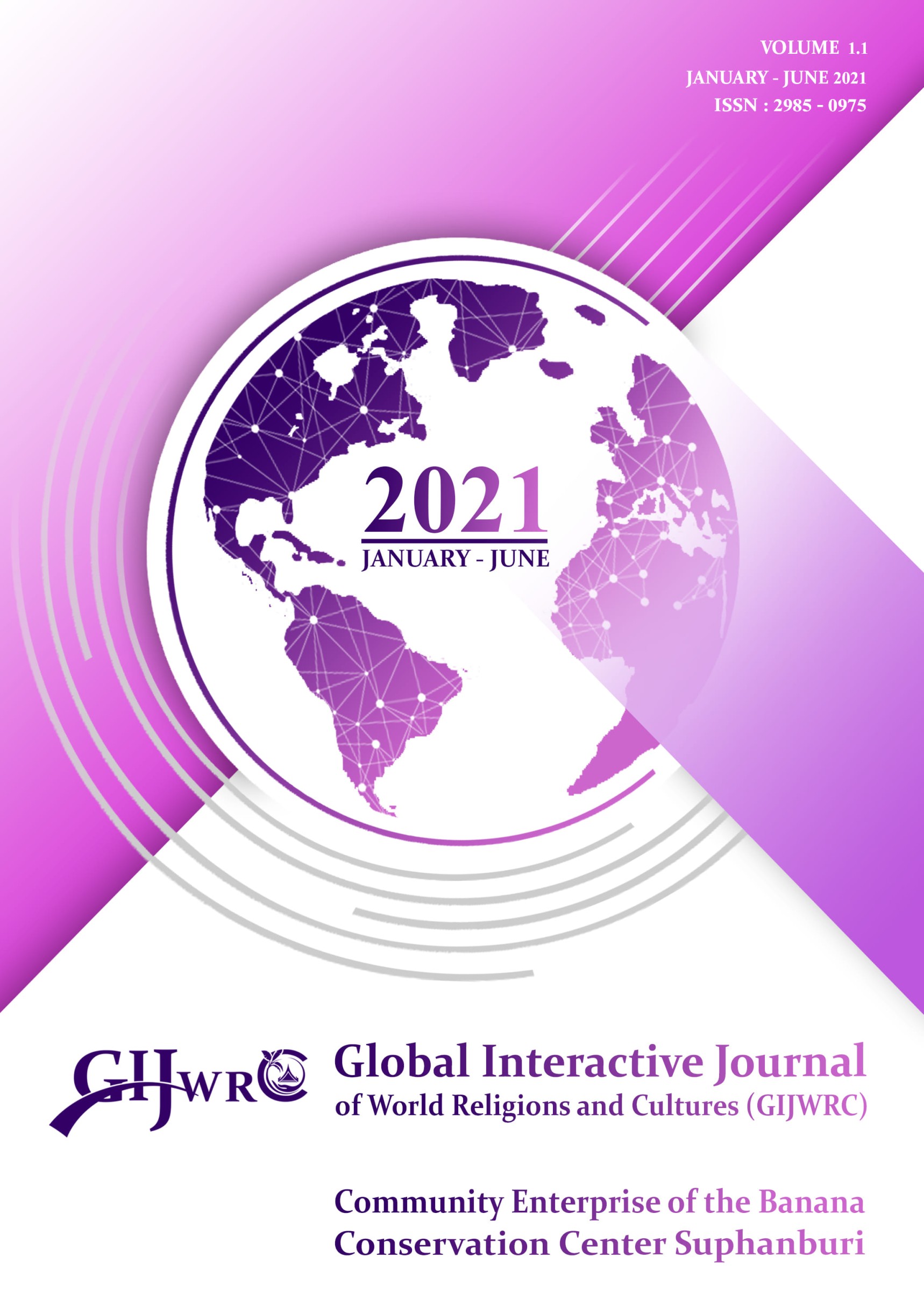THE BUDDHIST INNOVATING OF THE 4 BHAVANAS TO INCREASE THE POWER OF ELDERLY PERSON IN NAKHON PATHOM PROVINCE
Main Article Content
Abstract
The research topic is “The Buddhist Innovating of the 4 Bhavanas to Increase the Power of Elderly Person in Nakhon Pathom Province”. The objectives were as follows: 1) to study the Buddhist Innovating the 4 Bhavanas for increasing the power of the elderly person in Sampran District, Nakhon Pathom Province; 2) to develop the Buddhist Innovating the 4 Bhavanas model to increase the power of the elderly person in Sampran District, Nakhon Pathom Province; and 3) to create a model Buddhist Innovating the 4 Bhavanas to increase the power of the elderly person in Sampran District, Nakhon Pathom Province. The research team has set up mixed-methods research consisting of qualitative research, collecting insights from 27 participants through photos, and focus group discussions. By using the purposive sampling method, all three groups consisted of a group of monks who served as temple managers to train and empower the elderly and a group of community leaders. Clubs and agencies involved in caring for the empowerment of the elderly, groups of members of the elderly club, a total of 12 people per picture, Action research is collecting data with participants in the Buddhist Innovating Meditation 4 activity to increase the power of 15 elderly people in Sampran District, Nakhon Pathom Province 15 participants participated in the activity. By comparing the paired t-test before and after participating in the activity, both positive and negative statements showed good results. Understand Buddhist innovation, meditation 4, and cooperate with activities very well, have clarity, and have good opinions and attitudes. Have smart intelligence, showing an understanding of the goal of the activity.
Article Details
References
Pornpimol Tiptem (2022). Problems of the elderly in organizational development.RetrievedJune,22,2022, from http://elderly.blogspot.com/2012/06/blog-post.html.
Phra Dhammapitaka (2004). Right concentration and Buddhist meditation. Bangkok: Dhammasapa and Banlue Dhamma Institute.
Phra Thammakosajarn (2005). The horizon of knowledge and the results of education. Bangkok: Printing House, Samlada Limited Partnership.
Phra Brahmagunaporn (2007). Buddhist Dictionary. Dharma edition. Bangkok: Chanpen Publishing House.
Phra Brahmagunaporn (2004). Principles of self-development. 15th printing. Bangkok: Mahachulalongkornrajavidyalaya University.
Phra Phuchissa Panyapachoto (2019). “Promoting well-being according to the four meditation principles of the elderly in Yang Hom Sub-district, Khun Tan District, Chiang Rai Province”. Journal of MCU Social Development. 4(1), 49-50.
Phramahakraiwan Chintattiyo, Dr., et al. (2017). Integration of Buddhist Principles in Promoting Elderly Health in Community Organizations, Sampran District, Nakhon Pathom Province. Research Report". Mahachulalongkornrajavidyalaya University Buddhapanya Si Dvaravati Buddhist College.
Phramahasuthit Apakaro and Saichon Panyachit (2015). “The model for promoting well-being and learning in society according to Buddhism”. Veridian E-Journal, Silpakorn University. 8(1),958.
Somsak Srisantisuk (1996). The Sociology of Aging: Reality and Predictions in Thai Society. Bangkok: Chulalongkorn University.
National Statistical Office (2021). Summary of important results of the survey of the elderly population. in Thailand in 2007. Retrieved 26 March 2021, from http://service.nso.go.th/nso/nsopublish/themes/.
Ganesh, Kamala (2005). Made to measure. Dutch elder care at the Intersections of policy and Culture. In Kamala Ganesh. Rajni Palriwala and Carla Risseeuw: Care culture and citizenship. Revisiting the politics of the Dutch welfare state.


